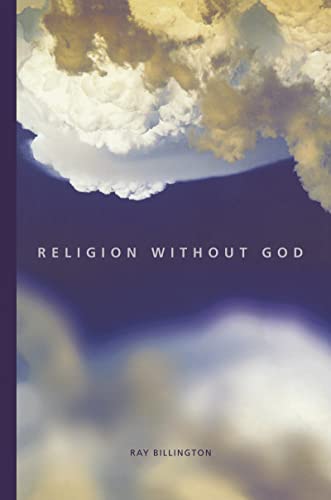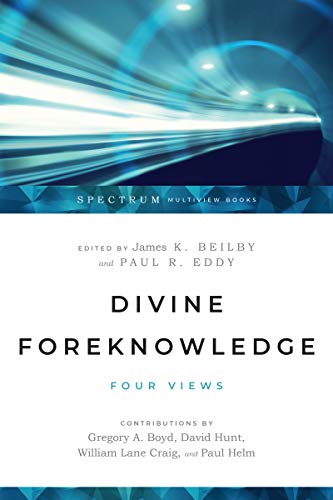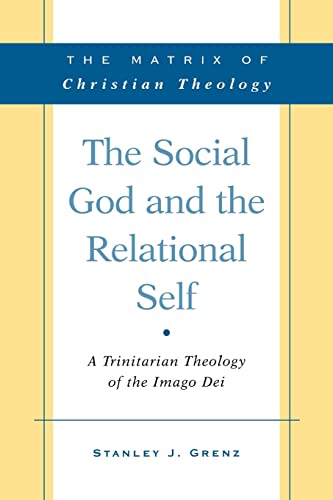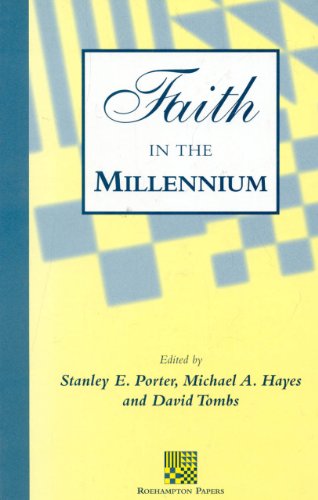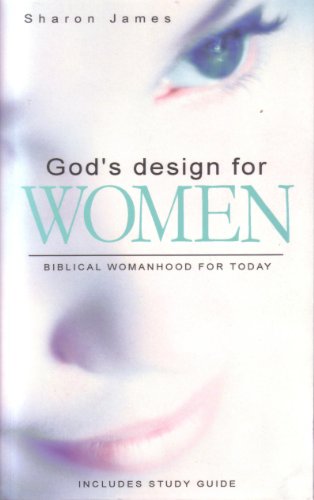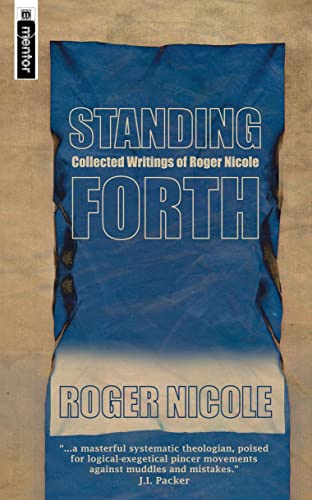The thesis of this highly polemical book by Ray Billington is that religion is better off without God and all its traditional Western accoutrements. To that end, the author—an External Examiner of Philosophy for the European Baccalaureate and the author of two previous books—explores the lineaments of non-theistic religion and mounts a case against all forms of theism, but particularly against Christianity. This review will prove inadequate to detail the book’s plethora of contradictions, misstatements, and otherwise objectionable elements.
Billington makes many uncharitable and unduly hostile remarks against theism and Christianity, such as speaking of evangelical enthusiasm as ‘religious masturbation’ (138). One also finds many unsupported and even farcical statements such as, ‘The Sermon on the Mount … is, in fact, a magnificent description of the way of Zen’ (129). However, Billington makes one insightful point worth noting: much of the religious consciousness of the world lacks the concept of a personal God that is taken so much for granted in the West. To make this case, Billington offers short treatments of nontheistic religion as found in nondualistic Hinduism, aspects of Buddhism, Taoism, and in ‘profane religion’—cases of mystical experiences sans God occurring outside of traditional religious piety.
Billington proceeds on the assumption that ‘God is dead’ in the Nietzschean sense. The concept of a personal God has little purchase for contemporary thoughtful people (at least those like himself). He seems to think that the brute fact of the secularisation of the West presents reasons to abandon theism. Secularisation, however, is not a worldwide phenomenon (as the growth of third world Christianity evidences), and one cannot deduce a philosophical conclusion from cultural tendencies. One needs solid arguments for that. Unlike Nietzsche, though, Billington does not abandon religion entirely, but promotes ‘religion without God’. He gleans eclectically a number of insights from several traditions, but seems particularly fond of Taoism, claiming that ‘the Tao Te Ching is a book which expresses genuine religion more comprehensively than any of the scriptures produced by the Semites’ (127), although is not taken as ‘a religious icon’.
Arguments over the proper definition of religion are widespread and difficult to resolve. The task of finding the necessary and sufficient conditions for religion or of finding some ‘family resemblance’ between all religions—that eschews concern for finding an essential core as misguided—has occupied many scholars of religion. Billington provides a minimal essentialist definition.
The following [is] essential to religion: the expression of certain feelings, some form of meditation or contemplation, together with what may be termed a philosophical approach to the world an the understanding of one’s place in it; and the hint that these are likely to play more than a minor role in a religious person’s existence (15).
I agree that genuine ‘religion’ need not involve belief in God. Many of Billington’s other claims are disputable though. He argues that religion should be separated from any necessary attachments to the notions of: (1) a persona! God, (2) ‘historical or quasi-historical figures as religious icons’ (Buddha, Moses, Jesus, Muhammad), (3) holy texts taken to contain ‘absolute truth’, (4) and morality. I will limit my criticisms to four points related to Billington’s contentions concerning mysticism, monotheism, and morality.
First, Billington is quite dismissive of the positive arguments for monotheism (33–40). His presentation of theistic arguments is tendentious and clumsy, and he fails to note the significant work done in natural theology in the past few decades by virtuoso analytic philosophers such as Richard Swinburne, William Lane Craig, and J.P. Moreland. Versions of the cosmological, design, and moral arguments—among others—are flourishing. Billington does not engage these arguments, but ignores them. From another angle, the Reformed epistemology movement (led by Alvin Plantinga) argues that natural theology is not required for rational belief in the Christian God (although Plantinga himself has revived a highly sophisticated, modal version of the ontological argument). This significant, well-recognised, and well-documented research programme is entirely overlooked by Billington.
Second, Billington is incautious in his handling of the mystical elements of various religions. He merely asserts—rather than argues—that the nontheistic mystical elements various religions are ‘higher’ than the theistic experiences found in many religious traditions (47). In the classic study Mysticism: Sacred and Profane (1957), R.C. Zaehner provided three distinct categories of mysticism: (1) nature mysticism (Wordsworth), (2) monistic (or nondualistic) mysticism, and (3) theistic mysticism. Billington seems to conflate the first two categories, while largely ignoring—or dismissing—the third as a live option. Billington’s thinking is an example of the ‘perennial philosophy’ approach that attempts to isolate an experiential or doctrinal core supposedly found in all religions (monism), which then becomes the normative principle for religious evaluation. Hence, the rejection of theistic mystical experiences as substandard by definition. (On this questionable approach, see W.T. Stace, Mysticism and Philosophy [1960] and Aldous Huxley, The Perennial Philosophy [1944].)
Third, having unfairly rejected the positive case for monotheism based on theistic arguments and having marginalised the theistic elements of mysticism, Billington builds his argument for religion without God almost entirely on certain nontheistic mystical experiences. Here, too, he ignores a large body of philosophical arguments for theism that are based on theistic religious experiences. Especially noteworthy here is the work of Keith Yandell and William Alston. The fact is that the arguments for some cases of theistic mysticism being veridical (or truth conveying) is much stronger than those made on behalf of nontheistic mysticism, which are critically flawed. One basic point must suffice.
Billington, like other perennialists, repeatedly claims that genuine mystical experience is ineffable (beyond thoughts, concepts, and language). Related to this, he is fond of the epigram from the Tao Te Ching: ‘The tao that can be told is not the eternal Tao; The name that can be named is not the eternal Name’ (81). Instead of describing a personal and relational being who is distinct from the one having the religious experience (as in monotheistic mysticism), the nontheistic mystical experience is said to be ineffable because the personality of the subject drops away into the nontheistic and nondualistic mystical reality, which eludes rational elaboration in principle. However, if the experience itself is incapable of being explained in conceptual and rational terms, it necessarily lacks any argumentative power. A rational argument requires coherent and factual premises that lead to a conclusion through some pattern of argument (whether inductive, deductive, or abductive). No such premises and no argument form are available for nontheistic mysticism if ineffability is invoked. Ironically, Billington criticises theistic concepts as too vague to be very meaningful (4) and then turns around and claims that nontheistic mystical experiences are entirely beyond rationality (58). This is surely inconsistent.
On the other hand, theistic mystical experiences (as well as other non-mystical kinds of religious experiences) can be used as evidence for belief in God since the object of the experience does not utterly transcend conceptuality or rationality. Moreover, the individuality and personality of the experiencer does not drop out of the picture, but remains intact. In other words, the subject-object relationship still holds, thus opening the door to coherent accounts of the experience. Consider the experiences of Isaiah (Is. 6:1–8) or Moses (Exod. 3) or the Apostle John (Rev. 1:12–18) in Scripture or a whole raft of theistic and Christian experiences through history. In each case, individuals claim to have encountered an awe-inspiring and transcendent Being who could, nevertheless be described conceptually in language. Under these conditions, there is no need to claim ineffability (however much mystery may remain). In light of this, one may argue that: (1) Many people have claimed to experience a personal and moral God. (2) A significant number of these claims are likely veridical if (a) the concept of God is coherent and (b) no defeaters are present which render the experience delusive. (3) The monotheistic concept of God is coherent and all of the purported experiences are not likely dispatched because of delusive elements. (4) Therefore (a), someone has experienced God; therefore, (b) God exists. This is not a stand-alone argument for Christian theism, but it can play a part in a larger cumulative case argument.
Fourth, Billington is most unconvincing (and alarming) when he argues that religion must move ‘beyond good and evil.’ Although, oddly he does not define himself as a pantheist (despite the fact that he endorses pantheistic mysticism), Billington agrees with pantheism that ‘all the moral castigation over the ages, made by preachers in God’s name, have been a total waste of breath’ (20). In the chapter, ‘Beyond Good and Evil’, he questions the meaningfulness of calling God ‘good’ and presents standard arguments for relativism.
Billington thinks that if we use moral categories in accessing revelation claims, this robs God of any intrinsic and original goodness. This does not follow. If God bestowed us with a conscience (Rom. 2:14–15), then conscience can be used in evaluating the moral dimension of God’s special revelation in Scripture. Billington also presents a simplistic view of divine-command meta-ethics and then easily destroys the straw man by saying that on this account ethics would be either arbitrary (if based on God’s will) or God would be unneeded if the good is not identical with his will. He fails however to entertain the possibility of a tertium quid wherein what is good is rooted in God’s unchangeably good character which is made known through commands (knowable through conscience and special revelation) to his creatures who are created by God to flourish according to divine wisdom. Further, there are credible theistic accounts of meta-ethics that do not employ divine command theory, Billington ignores all of this.
Billington’s case for relativism relies on the old and oft-refuted diversity and dependence arguments. Since so many disagree on moral matters, there must not be any objective reality to it. Diversity destroys objectivity. This is a non sequitur. Some may simply fail to make proper judgements for any number of reasons. Diversity of evaluation does not logically imply that there be no fact of the matter. Is not love better than hate? Besides, there is basic agreement between cultures on core ethical principles, as C.S. Lewis noted in The Abolition of Man. Second, the dependence argument claims that since we derive our morality from our cultures, there is nothing more to morality than our contingent and historically situated culture. Yet we also derive our knowledge of mathematics and basic logic from our culture. But this fact of epistemological acquisition (truths come through cultural learning) does nothing to relativise mathematics or the law of noncontradiction on a metaphysical level. Moreover, Billington’s relativism is so potent that it undermines his central thesis that there is one genuine nontheistic religion based on nontheistic religious experiences. Consider his statement,
Every human being lives in a different universe from everyone else; so we should not be either surprised or dismayed that ‘right’ and ‘wrong’, ‘good’ and ‘bad’ have different connotations for different people (116; emphasis in original).
Yet Billington claims that one should abandon the objective categories of good and evil to develop moral and spiritual ‘maturity’. He frequently castigates religious moralists as the enemies of ‘mature’ religion, but in so doing, he covertly employs the very moral categories that he claims he has transcended. This is contradictory. On the same page where Billington states that we all live in different universes he writes of the need to avoid ‘crude and inhumane laws’ (116). In this, he moves beyond reason itself. He quotes Walt Whitman’s poem, ‘All is Truth’, to the effect that we should transcend any determinative concept of, or commitment to, truth itself. The poem ends thus:
And henceforth I will go celebrate anything I see or am
And sing and laugh, and deny nothing (117).
One who celebrates everything can condemn nor defend nothing. Truth and rationality await the mortician.
Billington’s attempt to advocate religion without God, Scripture, religious exemplars, objective morality, and even truth is a peculiar hybrid of anti-theistic zeal and mystical enthusiasm, but it fails to achieve anything dose to a convincing argument.
Douglas Groothuis
Associate Professor of Philosophy at Denver Seminary


